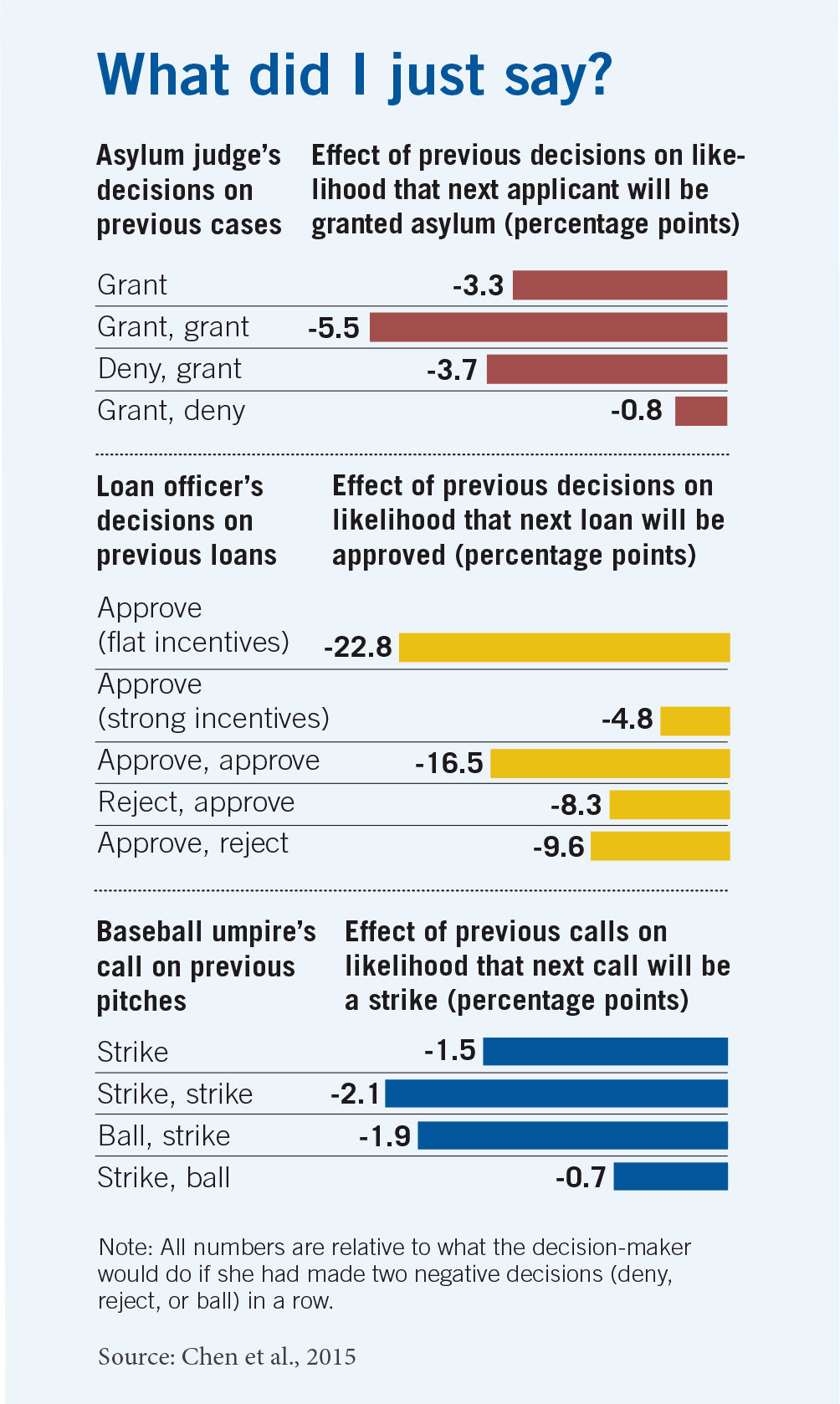
Stereotypes Skew How Much We Say about Misfortune
The implications of ‘surprised elaboration’ can be profoundly consequential.
Stereotypes Skew How Much We Say about MisfortuneHow a widespread fallacy causes bad decisions
People’s tendency to expect the opposite of what just happened could lead to costly mistakes.

The likelihood of granting asylum fell even more after the granting of two previous requests in a row.
Daniel Chen, Tobias J. Moskowitz, and Kelly Shue, “Decision-Making under the Gambler’s Fallacy: Evidence from Asylum Judges, Loan Officers, and Baseball Umpires,” Fama-Miller working paper, March 2015.

The implications of ‘surprised elaboration’ can be profoundly consequential.
Stereotypes Skew How Much We Say about Misfortune
Limiting the number of units consumers can purchase at a discount can have a ‘dragging-down effect’ on the quantity consumers buy.
Can Discounts Lead to Lower Sales?
The “endowment effect” influences how people process information.
People Overreact to News about Stocks (and Other Things) They OwnYour Privacy
We want to demonstrate our commitment to your privacy. Please review Chicago Booth's privacy notice, which provides information explaining how and why we collect particular information when you visit our website.